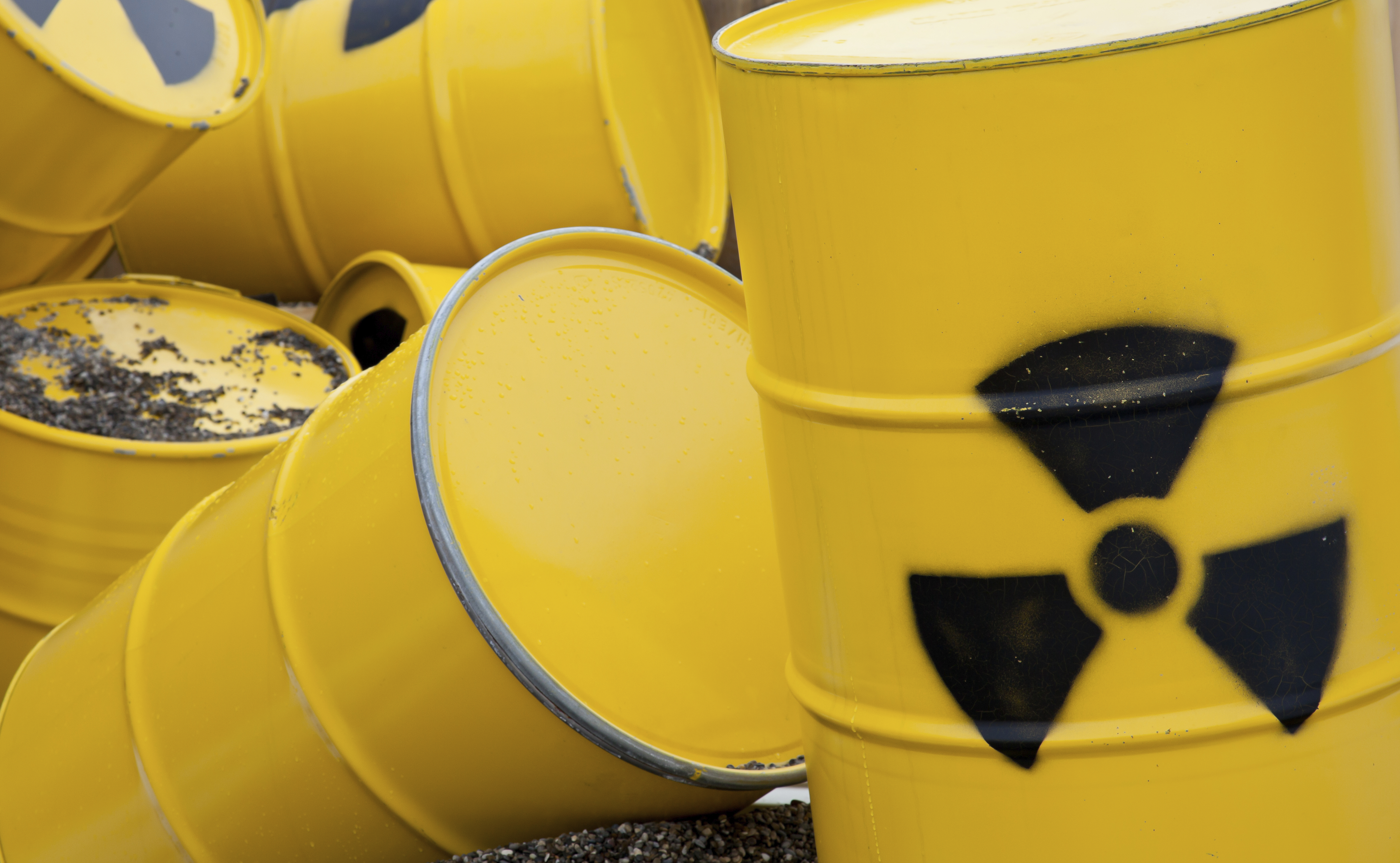German utilities buy out of nuclear waste liability for 23.6 bln euros
Years of heated negotiations over who will pay for the clean-up once Germany takes the last of its nuclear reactors offline in 2022 has finally resulted in an agreement, passed by Chancellor Angela Merkel’s cabinet on Wednesday.
Germany’s four nuclear power station operators – RWE, E.ON, EnBW and Vattenfall – will have to pay a basic amount of a total of 17.4 billion euros into a state-administered fund to finance interim and final storage of nuclear waste, according to the draft legislation.
They will also pay an additional “risk surcharge” of 35.5 percent – or 6.2 billion euros – to cover the eventuality that costs could exceed current projections, and that the return on capital in the fund could be lower than expected.
“We ensure that financing the shut-down, decommissioning and waste disposal is guaranteed in the long term, without one-sidedly burdening the society with the cost, and without endangering the economic situation of the operators,” federal economy minister Sigmar Gabriel said in a press release.
Germany’s nuclear phase-out is one of the basic aims of country’s energy transition, on a par with renewable development to decarbonise the economy. But the logistics of how to carry it out have presented major challenges.
The utilities that operate the nuclear plants have been hit hard by the energy transition away from their core business of conventional power generation and there has been widespread concern that they may not be in a position to finance the full costs of nuclear decommissioning and waste disposal, leaving the (future) taxpayer to foot the bill.
Under the agreement signed Wednesday the utilities will be responsible for decommissioning and deconstructing their nuclear power plants, as well as fully preparing the radioactive waste for storage. The economy ministry has said they must build up the necessary financial reserves to cover these costs.
But storing that waste – which will have to be done into the next century – will now be down to the state. The draft legislation outlines how the fund to cover the costs of this long-term storage will work.
Once it is passed into law – slated for early 2017 – the utilities will have to transfer the basic amount into the fund. If they decide to pay the risk surcharge at the same time, they will then be free of all responsibilities for nuclear waste storage.
If utilities do not come up with the risk surcharge right away, they have until 2022 to pay, with interest of 4.58 percent per year. Alternatively, the government can agree to receive the full amount from individual nuclear power plant operators in interest-bearing instalments until 2026.
The fund will be controlled by a board of trustees comprising representatives of the economy, finance and environment ministries, which is responsible for the safe investment of the funds for decades to come.
The polluter pays
The “polluter pays” principle and provisions in Germany’s nuclear power legislation and the German Commercial Code oblige the four big German utilities (as well as some smaller municipal utilities which have part-ownership of some of the "Big Four’s" nuclear operations) to put aside funds for dismantling and waste storage.
Last year, a government stress test of the utilities’ provisions failed to give clear results on whether their funds were sufficient. While calculations showed the companies had set aside the stipulated funds, the results suggested the costs could far exceed these estimates.
The federal cabinet responded by setting up a Commission to Review the Financing for the Phase-out of Nuclear Energy, made up of 19 representatives from parliament, industry associations and environment organisations.
Draft follows commission proposals
The new draft law “essentially implements” the proposals unanimously agreed by the commission and published earlier this year, commission co-head Jürgen Trittin told Reuters. Therefore, no big changes to the draft agreed today by the cabinet are expected in the following legislative proceedings, as long as the European Commission finds that it complies with state aid rules.
Today’s draft legislation will also enforce the nuclear plant operators’ liability in case of company restructurings. Minister Sigmar Gabriel had called it the “parents are liable for their children” law, with E.ON’s announcement to spin off its fossil and nuclear power operations and Vattenfall’s 2012 restructuring in mind.
First reactions
E.ON welcomed the government decision in a press release, saying it sees “the possibility of finding a social consensus that will put an end to a highly controversial discussion which has been ongoing for decades.”
The German Renewable Energy Federation (BEE) called the pact “a gift for the nuclear industry”. The announced amount of 23.6 billion euros was “much too small”, according to managing director Hermann Falk.
“In the end, citizens foot the bill for the nuclear phase-out,” said Hubertus Zdebel, the Left Party's spokesperson for the nuclear exit. “Compared to the already insufficient proposals by the Trittin Commission, RWE, E.ON, Vattenfall and EnBW are relieved of an additional 1.5 billion euros [in cost].”
With the draft in its current form, the polluter pays principle was invalidated and the taxpayer would now have to bear "enormous financial risks", said Hubert Weiger, head of Friends of the Earth Germany (BUND).
For background please also read the CLEW factsheet Securing utility payments for the nuclear clean-up and the CLEW dossier The challenges of Germany’s nuclear phase-out.

